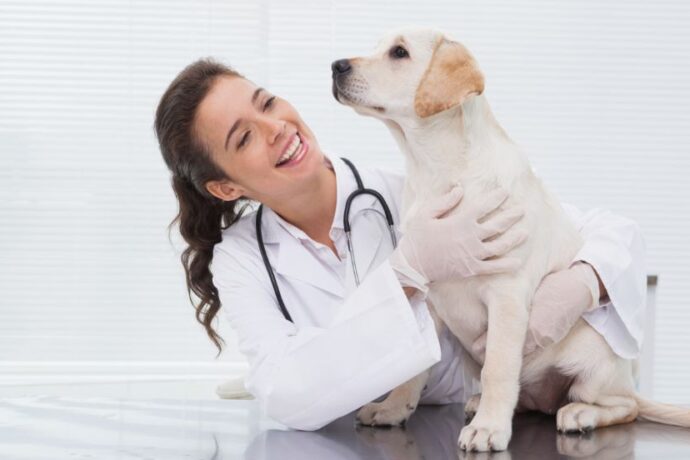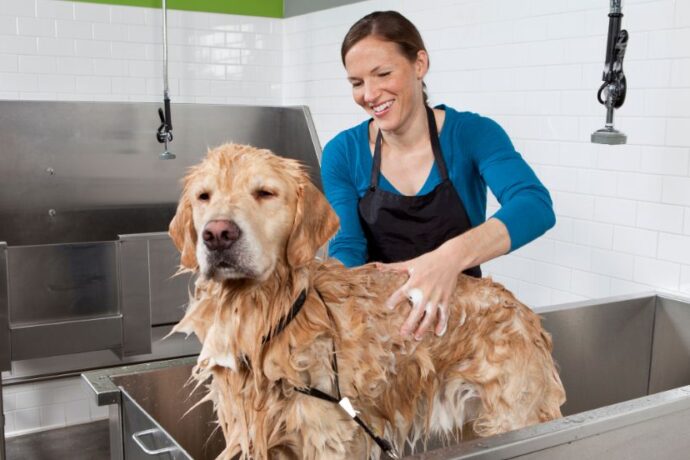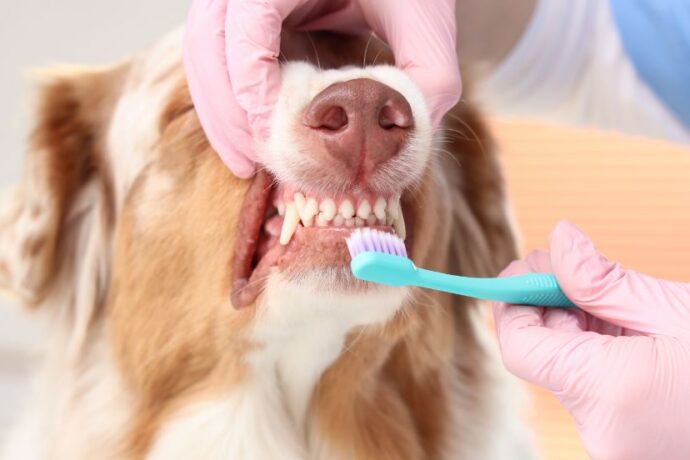Just like humans, dogs have a delicate balance of bacteria in their digestive system. This microbiome plays a crucial role in digestion, immunity, and even mood. Probiotics—live beneficial bacteria—can help maintain this balance. Introducing probiotics into your dog’s diet can be particularly helpful after antibiotics, during digestive issues, or to support overall gut health.
What Exactly Are Probiotics for Dogs?
Probiotics are live microorganisms that, when administered in adequate amounts, provide health benefits to the host—in this case, your dog. They work by replenishing “good” bacteria in the gut, aiding digestion, and keeping harmful bacteria in check. Common strains used for dogs include Lactobacillus, Bifidobacterium, and Enterococcus. These strains are often formulated in powders, capsules, or incorporated into certain foods.
Prebiotics vs. Probiotics: Knowing the Difference
It’s easy to confuse prebiotics with probiotics, but they are different. Prebiotics are non-digestible fibers that feed the beneficial bacteria in your dog’s gut. Think of them as fertilizer for the probiotics. While probiotics introduce live bacteria, prebiotics ensure that bacteria thrive and multiply. Foods like chicory root, pumpkin, and bananas are natural prebiotics that complement probiotic supplements.
The Different Types of Probiotics for Dogs
Probiotics come in several forms, each offering unique advantages:
- Powders and Capsules: Convenient and easy to mix with your dog’s food.
- Fortified Dog Foods: Some commercial dog foods already contain probiotics.
- Fermented Foods: Yogurt, kefir, and certain cheeses contain live bacteria, but always check for safe ingredients suitable for dogs.
- Chews and Treats: Specially formulated probiotic treats are a tasty alternative for picky eaters.
Selecting the right type depends on your dog’s preference, size, and any specific digestive needs.
The Benefits of Probiotics for Dogs
Scientific studies show that probiotics can support your dog in multiple ways:
- Improved Digestion: Probiotics can reduce diarrhea, constipation, and gas by maintaining a healthy gut flora.
- Enhanced Immunity: A balanced gut microbiome strengthens the immune system, helping your dog fight infections.
- Allergy Relief: Some research suggests probiotics can modulate immune responses, reducing inflammation linked to skin allergies.
- Post-Antibiotic Recovery: Antibiotics often wipe out both good and bad bacteria. Probiotics help restore balance faster.
A 2018 study published in Frontiers in Veterinary Science found that dogs receiving specific strains of Lactobacillus had significant improvements in stool quality and gut microbiota diversity (1).
How to Introduce Probiotics Safely
Before adding probiotics to your dog’s diet, consider the following:
- Consult Your Vet: Especially if your dog has underlying health conditions or is on medication.
- Start Slowly: Introduce small amounts first to observe tolerance.
- Check Ingredients: Avoid products with artificial flavors, sugar, or harmful additives.
- Follow Dosage Instructions: The right amount is usually based on your dog’s weight and age.
Even with safe probiotics, some dogs may experience temporary bloating or gas during the first few days. This is normal as their gut adjusts.
Foods That Naturally Boost Your Dog’s Gut Health
In addition to supplements, you can include natural probiotic and prebiotic foods in your dog’s diet:
- Plain Yogurt: Ensure it’s free from artificial sweeteners like xylitol.
- Kefir: A fermented milk drink rich in beneficial bacteria.
- Pumpkin: High in fiber, it acts as a natural prebiotic.
- Fermented Vegetables: Small amounts of dog-safe options like carrots and green beans can help.
These foods can complement your dog’s probiotic supplements and support long-term digestive health.
FAQs About Probiotics for Dogs
1. Can probiotics help with dog diarrhea?
A. Yes. Studies show that specific strains like Lactobacillus acidophilus and Enterococcus faecium can reduce diarrhea and improve stool consistency.
2. Are human probiotics safe for dogs?
A. Puppies already have higher calorie needs, so special weight-gain foods are rarely necessary unless prescribed by a veterinarian. Overfeeding can lead to growth issues.Not always. Human probiotics may contain strains or dosages unsuitable for dogs. Always use dog-specific probiotics unless advised by a vet.
3. How long does it take for probiotics to work in dogs?
A. Effects can vary. Some dogs show improvement in a few days, while others may take 2–4 weeks to notice digestive or immune benefits.
Final Thoughts:
Probiotics can be a valuable addition to your dog’s diet, supporting digestion, immunity, and overall well-being. Whether through supplements or probiotic-rich foods, introducing beneficial bacteria safely can make a noticeable difference in your dog’s health. Always pair probiotics with a balanced diet and veterinary guidance for the best results.
References:
1. Influence of Lactobacillus kefiri on Intestinal Microbiota











